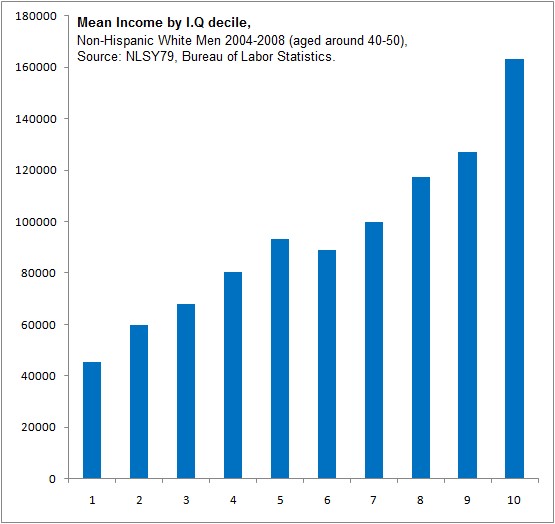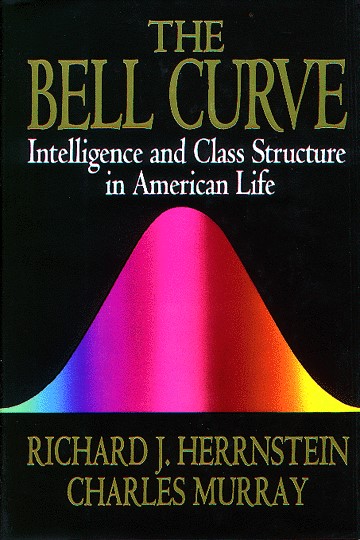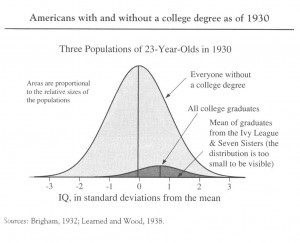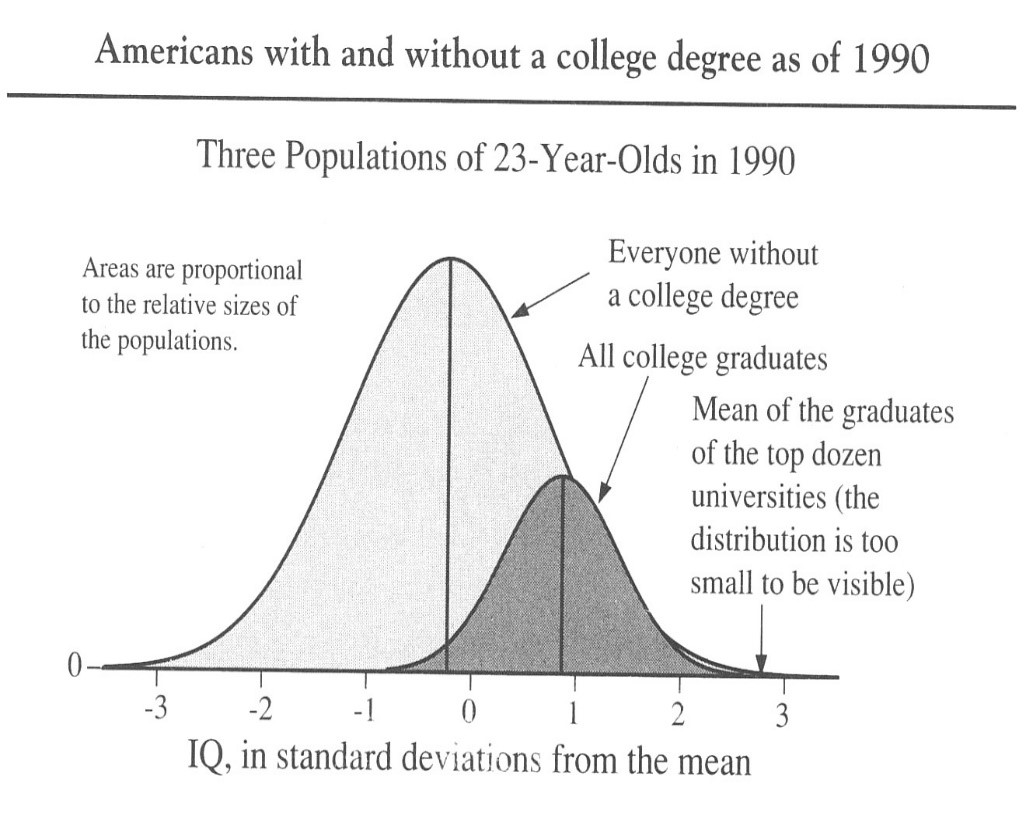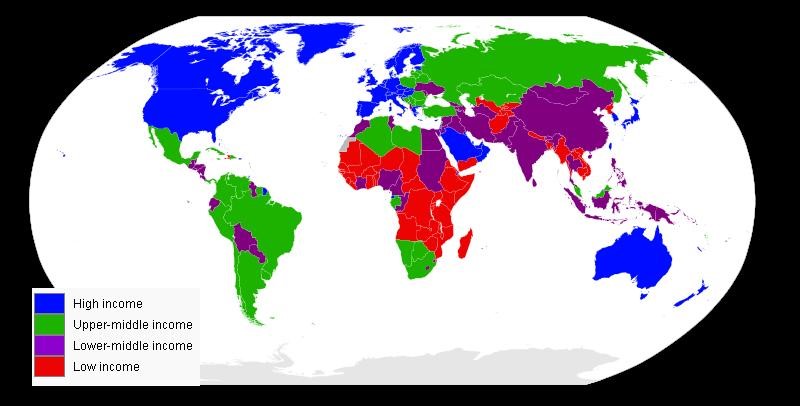Educational and Cognitive Capital
Being smart is ‘cognitive capital’ in our complex, high tech, knowledge economy – in education, training and employment.
Numerous studies show a clear link between IQ level and income or wealth. Here is some data from the US Bureau of Labor Statistics. For this sample the lowest decile (1/10) is people with I.Q below 84, and the highest decile above 116.
In rapidly changing, unpredictable, and complex, learning intensive work environments IQ is increasingly viewed as valuable ‘cognitive capital’, and there is pressure to accumulate this capital, much like social or financial capital.
And due to the dynamics of our current economy and institutions, we live in a time that tends to polarize the impact of IQ as ‘cognitive capital’. We live in –
“…a period of growing equality of access to education and increasing stratification of marketplace rewards, both of which have increased the importance of human capital. One element of human capital is cognitive ability: quickness of mind, the ability to infer and apply patterns drawn from experience, and the ability to deal with mental complexity. Another is character and social skills: self-discipline, persistence, responsibility. And a third is actual knowledge. All of these are becoming increasingly crucial for success in the post-industrial marketplace.”
Professor Jerry Muller, March 2013, Foreign Affairs
A central thesis of The Bell Curve, a seminal work on IQ and its impact in society published in the 90s, is that those with very high intelligence – the ‘cognitive elite’ – are becoming increasingly separated from those of average and below-average intelligence – and that this has important economic and social implications.
This claim finds support if we look at bell curve data on college students. Going back to 1930 the average IQ of all college graduates in the US was 111. The average IQ of the elite top 12 ‘Ivy League’ colleges such as Harvard, Yale, Princeton & Stanford was 120. That’s not that big a difference. (In the bell curve shown below, we calculate the IQs knowing that 1 ‘standard deviation’ = 15 IQ points, and the mean is 100).
If we jump forward to 1990 we can see a very different picture.
While the average IQ of all college graduates in the country has barely changed (from 111 to 113), the average IQ of Ivy League college graduates – the elite 12 universities in the US – has increased from 120 to around 140. That’s a large difference, and demonstrates a dramatic polarization effect in education, which in turn is related to professional success.
Looking at the economy specifically, here’s an interesting international study on the IQ-wealth link. Researchers in 2011 analyzed IQ test scores from 90 countries and found that the intelligence of the people – especially the smartest 5 percent – made a big contribution to the strength of their economies.
For each one-point increase in a country’s average IQ, the per capita gross domestic product (GDP) was $229 higher. For the smartest 5% of the population in each country – the ‘cognitive elites’ with an IQ of 125 or greater – it made an even more dramatic difference to salary: for every additional IQ point in that group, a country’s per capita GDP was $468 higher. In other words, the IQ level of e.g. Lichtenstein’s cognitive elite is much, much higher than the IQ level of Burundi’s cognitive elite.
Why are cognitive elites important for economic productivity? The authors of the study offer some explanations:
“IQ is relevant for technological progress, for innovation, for leading a nation, for leading organizations, as entrepreneurs, and so on”
“this [high IQ] group’s cognitive ability predicts the quality of economic and political institutions, which further determines the economic affluence of the nation”
In summary, not only is IQ level an important lever for earnings and measures of professional success, it is also cognitive capital that is increasingly rewarding to individuals with IQs of 125 or above.
“I think in the modern economy, human capital and cognitive ability are more important than economic freedom.”
Dr. Rindermann
I believe this provides a great motivation for those with an IQ that is within 15-20 points of reaching this ‘cognitive elite’ level, to train hard to raise their cognitive performance to that kind of standard.


